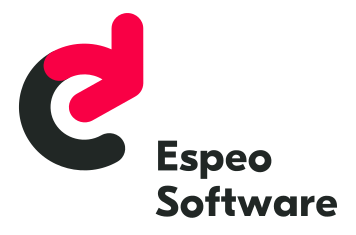Blockchain technology has had a tough year. The heady days of “to the moon” are perhaps over. It’s time to take stock of the year and look ahead to the next. Our blockchain experts agree that healthy skepticism is the best thing that could happen to the industry. Blockchain technology’s reputation as a money laundering tool and a get rich quick scheme is falling away as companies look for more specific uses. Blockchain projects now have to demonstrate real value propositions that address market needs.
In this post, I’ve asked four of our veteran blockchain experts for their take on the future of blockchain technology ahead in 2019. My question was simple: What is your prediction for the blockchain industry in 2019? I got a range of answers. Some key takeaways are that solid use cases will emerge and better app design will drive widespread adoption. Developers will work out scalability issues and many blockchains will fall away as stronger projects gain market share.
Marcin Zduniak, Head of Blockchain
My observation is that the wild west of ICOs is gone and the market is shifting to more organized STOs. It’s already happening and it will continue. At the moment, there are millions of different blockchains and they should merge into a smaller subset of technologies. Blockchain experts agree that it’s not sustainable to have so many different approaches to exactly the same problem. At the moment I see three main rivals: R3 Corda, Hyperledger, and JP Morgan Quorum (aka Ethereum Enterprise). These three will stay, the rest will be marginal or disappear.
Private blockchains optimize internal company processes or streamline arrangements and contractual obligations. Many things companies now do on paper could use blockchains to model and execute contracts mathematically. It’s still not cheap to implement these technologies, but it’s much cheaper to execute the process when you don’t need counterparties and middlemen.
Financial institutions such as central banks or wire transfer companies have a much easier path to implementation because they’re already digitalized. Tracking real-life goods still needs time to iron out. Finance will remain the leading force here and they will implement blockchain technology much faster than other industries. Gambling is big as well since there are no tangible items to trade.
One place that is adopting blockchain is education as part of their curriculum. Major educational institutions are offering finance or business blockchain courses. I mean it’s a buzzword so that’s probably part of the reason, but exploring it from different directions makes sense as a discipline. It’s not only for developers it’s also for business people are finance people it’s not only for tech-savvy people.
I’m a bad gambler, so I’m not sure when widespread blockchain adoption will happen. For now, cryptocurrencies are not as profitable so the pace of end-user adoption is much slower.
Blockchain Consulting Director, Dominik Zyskowski
In terms of fundraising, entrepreneurs need to find another token distribution method. STOs are emerging in markets that are legally ready for it. Switzerland is the most prepared in terms of a legal framework. Real estate, art, and other asset tokenization will extend ownership opportunities to more investors in 2019.
Another solution I hear from my fellow blockchain experts that’s gaining steam is remittances. Expats living in other countries than their families can use blockchain apps to transfer funds. I think systems such as Western Union need to face the coming disruption in the market.
We’ve already experimented with remittance platforms using Stellar at Espeo and it suits wallet systems well. Although it’s kind of primitive, it can bring a distributed wallet system where you can charge your wallet with fiat currency and convert it to some cryptocurrency and vice versa on the other side for a very small transaction fee.
UX and UI are also vital to encourage more people to adopt blockchain, especially people who aren’t familiar with it. Right now, you need to set up a wallet, which is not an easy thing to do. It’s is a bit of black magic for everyday users. Seamless UI is key here. For users who don’t think of blockchain at all when they do things, it’s the best solution. Designers have to create a simple, frictionless experience to attract more users.
We’ve experienced a few hard days with blockchain because the prices of cryptocurrencies are down. But I think some will steadily increase and ignite some new projects. Apart from price discussions, some government initiatives in Dubai (one of our active markets) include blockchain for document storage and transparent record keeping. In 2019 I foresee many more projects not dependent on coin prices. We have some exciting projects ahead.
Tomasz Liberski, Service Delivery Director
I can see that companies are adopting blockchain — companies that really want to use the technology rather than make a quick buck. That was the case in the recent past. I can see the shift from startups of all sorts being interested in blockchain as a short-term financing vehicle. Now, people who are interested are reaching out to blockchain experts for advice. They’re finding out how to leverage the technology to establish trust.
Talking to recent prospects, there’s more skepticism. They try to justify if blockchain is really necessary to use in a specific scenario rather than “let’s just use it to add hype to my project.” Just using it for the sake of using it is not enough anymore.
For instance, one of the companies that we’ve been working with is a New York real estate platform. We started working with them in 2017. They planned to raise funds in an ICO to create a blockchain-based notary platform for the New York rental market.
After New York outlawed ICOs, however, they went to the hedge funds and used more traditional financing vehicles. Now they’re coming back with what they wanted to do in the first place. They don’t need to raise money anymore, it’s more about creating a blockchain-based platform. Companies that are doing it now are in it because of the technology — in it because of the concept, not necessarily the financing vehicle.
Clients in the Middle East are interested in leveraging the technology. Maybe financing is not on their priority list and they’re cornering the market with blockchain. Again in the past, there was a very strong startup mentality where the number one goal is to survive. Now there are stronger business ideas with solid backing.
Tomasz Cichowicz, Blockchain Developer
In 2019 the focus will be on performance — sharding between nodes, for example, may fix some scalability issues. This process groups nodes so that each node doesn’t have to perform transactions. Sharding hugely increases performance and scalability.
Of course, any improvement will be a breakthrough in terms of blockchain tech, but in terms of what end users expect from app performance, I think it probably will still be slow, just not as slow as it is now.
Technologically, blockchain is mature but the uses are not mature yet. Market forces will define new uses for it. It’s a great thing to have a few tokens, virtual currency, or tokenized assets. But that’s the basic stuff that we have right now. Currently, real-world applications are in finance, exchanges or internal company data handling. Tech-specific use cases for developers exist as well. But for most of these, you need to know about blockchain and how it works to actually use it.
I think that we will see more daily uses for blockchain at least in some parts of our lives with concrete business cases. More user-friendly and approachable products will encourage more people to use it.
As for use cases, if I had one, I would already be creating it! I think entrepreneurs will apply blockchain to biotech data handling, supply chains and make them much friendlier for daily use. We’ll create ways to build tools on top of the blockchain so that it’s much more user-friendly.
Performance is currently a huge blocker because people don’t expect to wait 30 seconds or even longer for an operation to finish. We need to build tools that are much more intuitive. This will lend transparency to the technology and demonstrate the benefits of blockchain tech without the end-user even noticing it in the process.
Conclusion
After speaking to our blockchain experts, I came away with new insight into the future of the industry. Entrepreneurs and more established companies alike have an opportunity to attract tech-savvy millennials and outsmart legacy competition. Asset tokenization in real estate, art, as well as a generally fairer, more transparent systems, are just some of the paradigm-shifting features of the blockchain.
While 2018 was the year of the (oftentimes shady) ICO craze, 2019 will be the year that major industries will begin to adopt the blockchain for more tangible applications. Espeo Blockchain experts foresee better UI/UX that will attract more users to the technology. Our experts are excited to be part of this transition from hypotheticals to concrete blockchain products and services.




